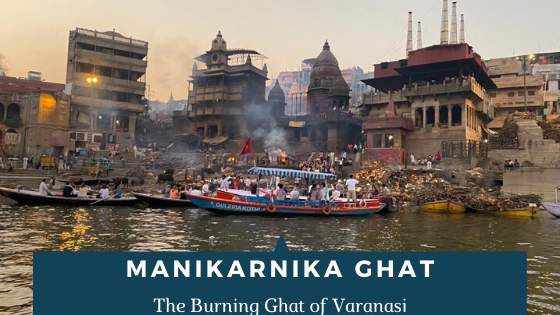- Use promo code "CPT10" & get 10% off on tours
- traveldesk@cityonpedals.com
A60E14 – Hussainiwala Border | #Amritsar60

The land of five rivers – Punjab is bordered by Indian Union territory of Jammu and Kashmir to the north, the Indian state of Himachal Pradesh to the east, Haryana to the South, Rajasthan to the southwest and the Pakistani province of Punjab to the west. Today we are going to talk about its borders with Pakistan. The state of Punjab shares three main borders with Pakistan – the Wagah Border (near Amritsar); the Hussainiwala border (near Firozpur) and the Sulemanki border (near Fazilka). In our earlier episode 02 of Amritsar 60, we have discussed the Wagah Border and the famous retreat ceremony that happens there every day. Today in our next episode in the series of Amritsar 60, we are going to make you all familiar with the electrifying atmosphere of patriotism in Firozpur. Another border that separates the two nations with a thin yet strong Line Of Control – (LoC) is the Hussainiwala Border.
About Hussainiwala Border, Firozpur
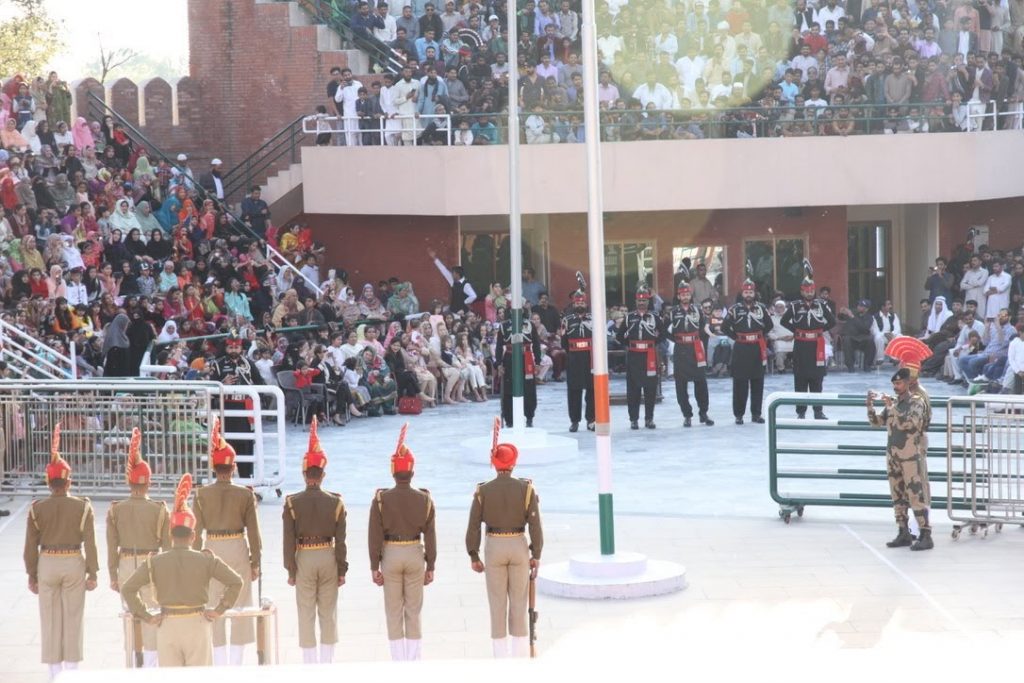
About 11 km from Firozpur which is situated on the banks of Sutlej river, there lies a village by the name of Hussainiwala. The village is located exactly opposite to the Pakistani village Ganda Singh Wala on the other side of the border. The village is named after the Muslim Peer Baba Ghulam Hussainiwala Ji (Saint Hussaini wala or Saint “who is of Husain”), whose tomb is in the Border Security Force, India headquarters at Hussainiwala. The Indian check post is just 100 meters from the zero point whereas Pakistan’s post is around 600 meters.
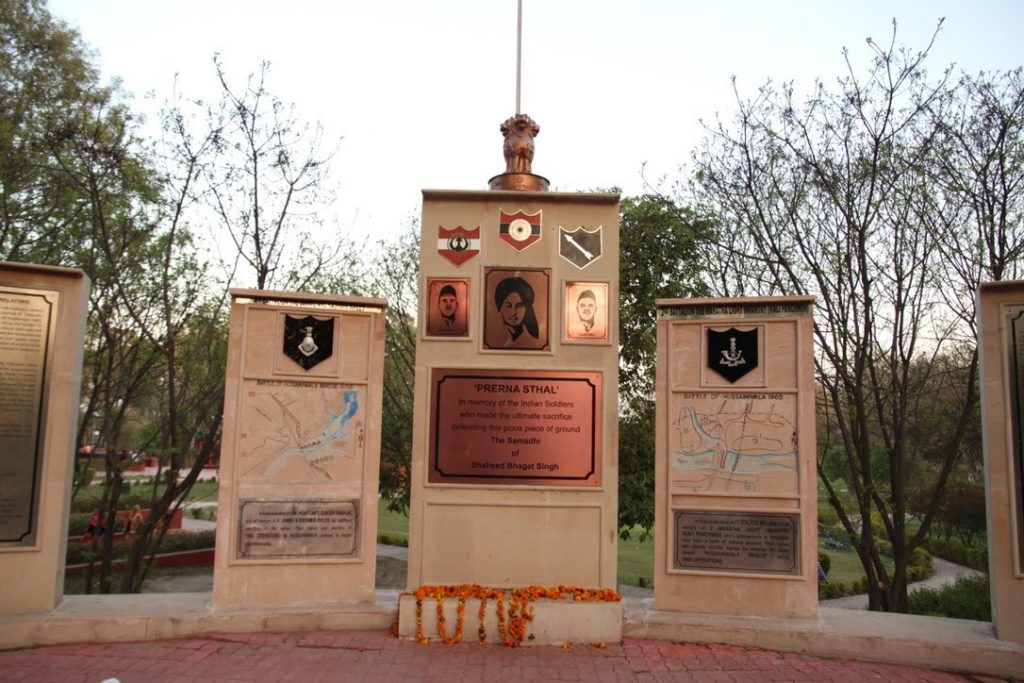
Hussainiwala is also known as the site of the National Martyrs Memorial, where the martyrs of Freedom Struggle Bhagat Singh, Sukhdev, and Rajguru along with Batukeshwar Dutt were cremated on 23 March 1931. They were all involved in bombing the Central Legislative Assembly. After the Partition of India, the cremation spot became a part of Pakistan but on 17 January 1961, it was returned to India in exchange for 12 villages near the Sulemanki Headworks (Fazilka). But the irony of fate is that during the 1971 Indo-Pak war, the statues of these martyrs were removed and taken away by the Pakistan army and have not been returned till today. An annual fair takes place at the memorial on 23 March, which is the anniversary of Singh’s death. The day is also observed across the state of Punjab.
When Did The Joint Parade Start At This Border?
Until 1970, it was the principal road crossing between India and Pakistan and was a trade route for truckers, mostly for the import of Kandahari Angoor (dehydrated grapes) and other fruits and food products from Pakistan and Afghanistan. This was then replaced by the border crossing at Wagah Border which was a little far in the north side.
It is worth mentioning that till 1970 there was no joint parade and retreat ceremony at this check post but one evening, Inspector General BSF, Ashwani Kumar Sharma, called upon both authorities to have joint retreat ceremony and since then it has become a tradition, which is very unique in itself.
Reaching To Hussainiwala Border
You may reach there by any mode of transportation like cars, cabs or by bus even. The roads to reach the location are wide, clean and decorated with swaying golden wheat fields on each side. On the way, in the evening you will only meet passing vehicles of army personnel and the travelers traveling to see the retreat. Before the border entrance, there is a huge Iron Bridge on River Sutlej which is closed on the Pakistan side.
Getting Inside The Premises
Being a small border, it opens its gates for visitors only 30 minutes before the retreat ceremony. There is an entry ticket that is purely unpaid or a VIP pass is also issued for the ceremony which you usually get after showing your ID Card. So your Identity Card is a must to visit this border. The same ticket is also required at the time of taking an exit from the border gates because otherwise, one can land into troubles.
Once you enter inside, you yourself will feel that you have entered into a different world. The Jawans or soldiers are more cordial and will help you at every step. There are proper seating arrangements where you can settle down to watch the ceremony from close proximity which usually begins at 5 pm every day.
The Retreat Ceremony
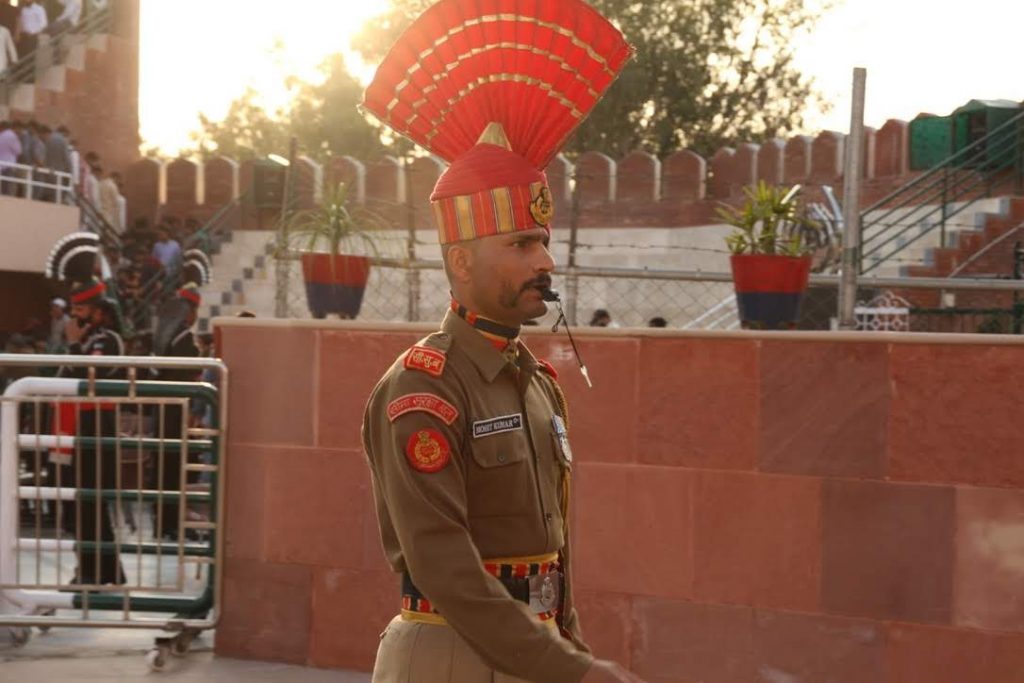
The Retreat Ceremony at the border crossing takes place every day at 5 pm, similar to the Attari – Wagah Border Ceremony in Amritsar. But there stand many differences in the Parade Ceremonies of the two. As comparative to Wagah Border, the attendees are seated in close proximity to the gates where the actual Parade takes place. Unlike the jingoistic display at Wagah Border which draws nationalistic tourists from all over India and Pakistan, the Hussainiwala ceremony is a more intimate ceremony attended mostly by local Punjabis from either side of the border. As a result, the atmosphere there is often friendly, where visitors often smile and wave to one another, and even cheer for each other’s guards as they perform the border rituals.
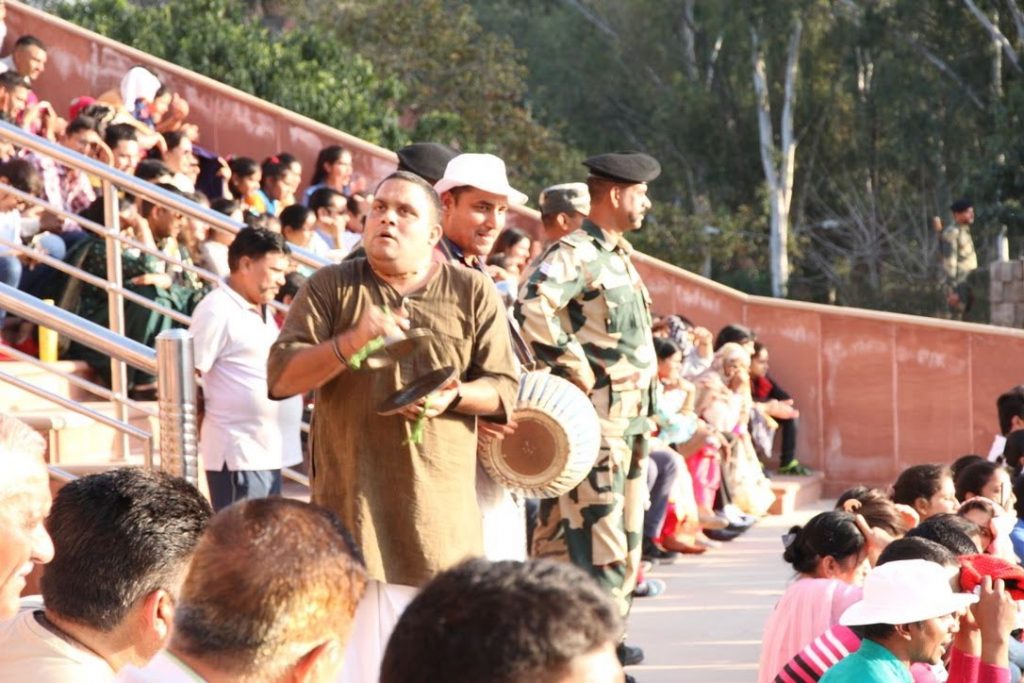
“One flag, One Land, One Heart, One Hand, One Nation evermore!”
However, citing the differences, we should not forget the similarities that one witness at any of the border of Punjab – the spirit of patriotism, the grandeur of the ceremony that is very well evident once you visit there. An area that is otherwise hauled by a weird silence suddenly cheered up by the sound of patriotic songs flying in the air. People here not only applaud for their respective soldiers, rather they boost up the morals of people of another side of the LoC. They wave and smile at each other and in spite of generating any animosity or a negative feeling they greet each other nicely and warmly.
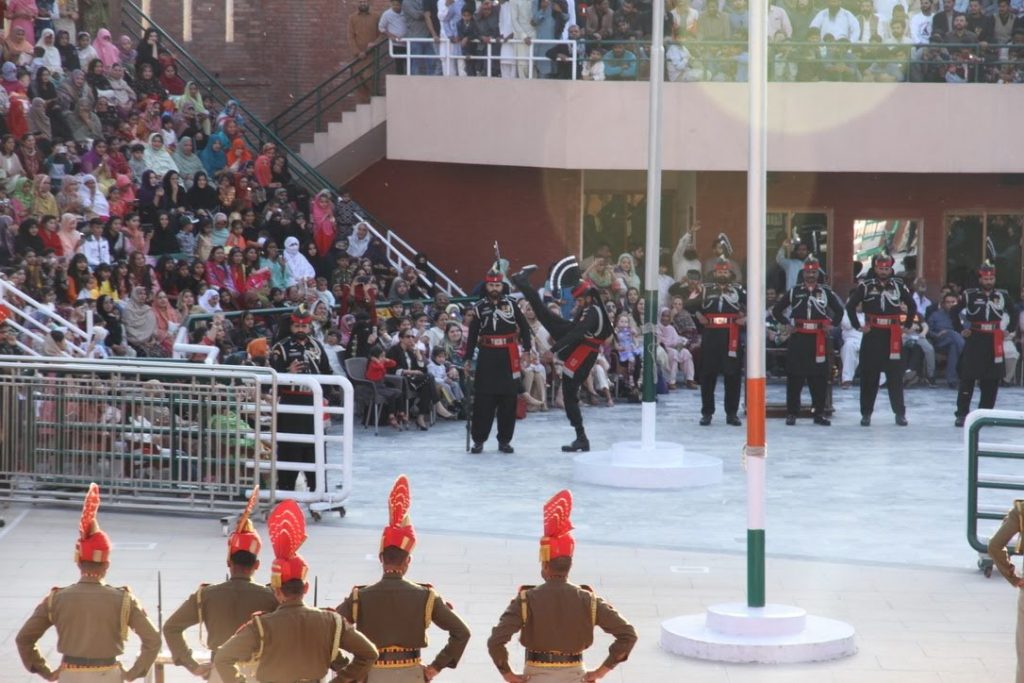
Before the ceremony commenced there are a plethora of unstoppable patriotic slogans “Bharat Mata Ki Jai” from the Indian side, reciprocated by Pakistan from another side of the border. Then comes the entry of real heroes of the show – BSF Jawans and Pakistan Rangers in equal numbers (not only men, women too). Then starts the sounds of clattering and thunderclap of heavy boots of the well-dressed Indian BSF Jawans in Khaki uniforms and equalizes their counterparts, the Pakistani Rangers emitting the sounds of Peshawari footwears and are heavily cladded in salwar-kurta – their National dress along with a big turban. Under the loud commands of their respective commanders, for about 40 minutes, both of them match their every movement and carry out the retreat ceremony done for the de-hoisting of the National flags of both countries with full honor and respect on every evening.
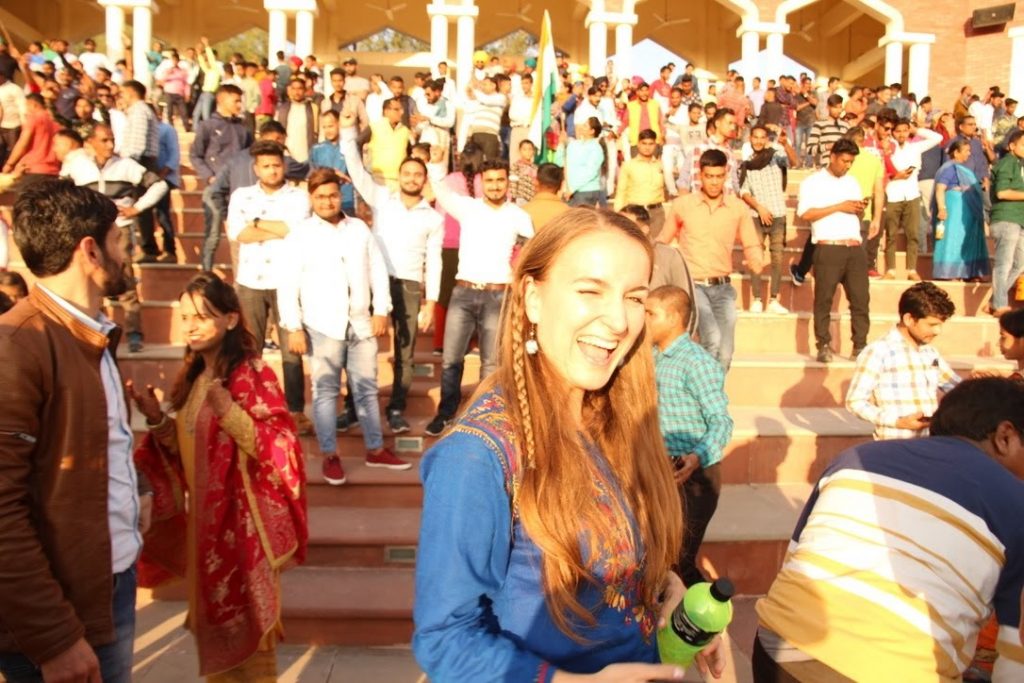
This further intensifies the feeling of Patriotism among the audience and every action of these BSF heroes is applauded by the numberless claps by them, which also provide these nation-guards a feeling of honor. People from far away visit here to watch the robust BSF Jawans competing their counterpart to prove an edge over them. Even the tiding hatred amongst the hearts of the people of the two countries, this retreat ceremony has remained to be a routine for years and years even though, there has been no legal compulsion on both sides for the same. As soon as the flags are folded and handed over, the BSF Jawans ask you to leave the premises. They further ensure that the civilians intentionally or unintentionally should not cross the borderline.
“It is actually the love of country that has lighted and that keeps glowing the holy fire of Patriotism.”
The love of one’s country is a splendid thing. But why should this love stop at the border? Let this Love flourish beyond barriers and surpass all the LoC’s no matter what and prevail in every human and keep the light of humanity alive now and always.!

